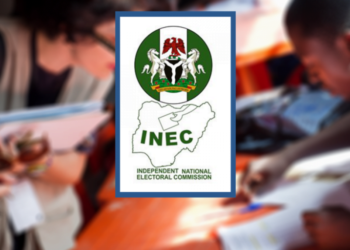By Ndubuisi Michaels
The Independent National Electoral Commission(INEC) has launched its defence of the July 16th victory of Governor Ademola Adeleke, positing that over-voting can only be proven through comparison of server, a secondary data with primary data in the BVAS machines.
In a very revealing disclosure for the the second straight day of defence, INEC faulted claims of over voting as emanating from lack of understanding or deliberate oversight on the part of the petitioners on the working of the voting machines.
In a presentation by the witness from INEC, Abimbola Oladunjoye, the Tribunal was told that after the election, the electoral body had to embark on a synchronization process after which data will be transmitted to the backend server.
According to the witness, if there is no network on a BVAS machine, the information will not be transmitted to the backend server immediately. This makes the backend server an unreliable source to determine over voting.
On the previous data provided by a team of lawyers from the All Progressives Congress(APC), the INEC witness said it was to fulfil the spirit of the Freedom of Iinformation law which mandates the commission to provide information sought within a stipulated number of days.
While explaining that the commission deployed 976 BVAS devices to cater for some large voting centres during the election, the commission affirmed that over voting cannot be proven except through diligent comparison between form EC8A and the physical BVAS Machine.
“The earlier report as at 22nd of July was in fulfilment of the FoI Act mandating INEC to provide response to information sought. As at this time, sychronization of data was still ongoing at the INEC server backend”, the witness noted.
The sitting at tribunal was punctuated by intermittent adjournments even as the BVAS machines used at the challenged polling units by APC counsel were brought to court Wednesday.
It will be recalled that the total sum of 976 polling units were falsely alleged of over voting.
However, Mrs Oladunjoye who is a deputy director of ICT department cleared the mess by thorough explanation before the tribunal Wednesday.
She further established that a BVAS machine was deployed to where the total registration of voters were more than 750, stressing that the primary source of overall result was form EC8A, BVAS machines and the registered voters.
The details were given on how failure of network can cause awkwardness for transmission of the result to the headquarters. She thereby said the result will remain on the BVAS storage.
The tribunal sitting continues Thursday.










